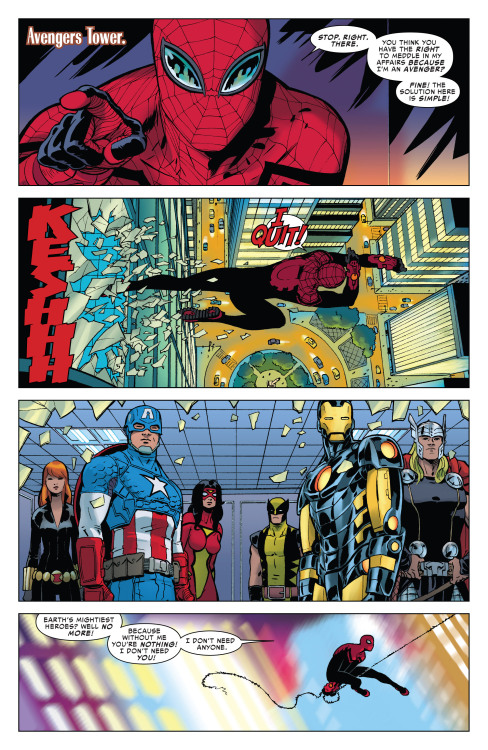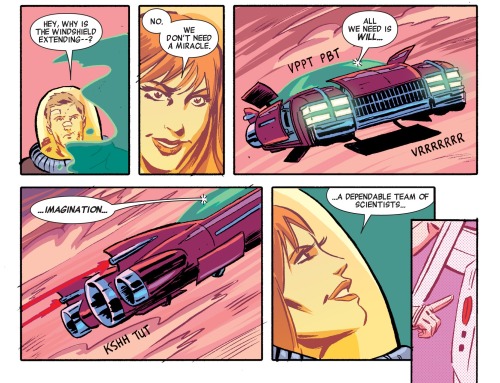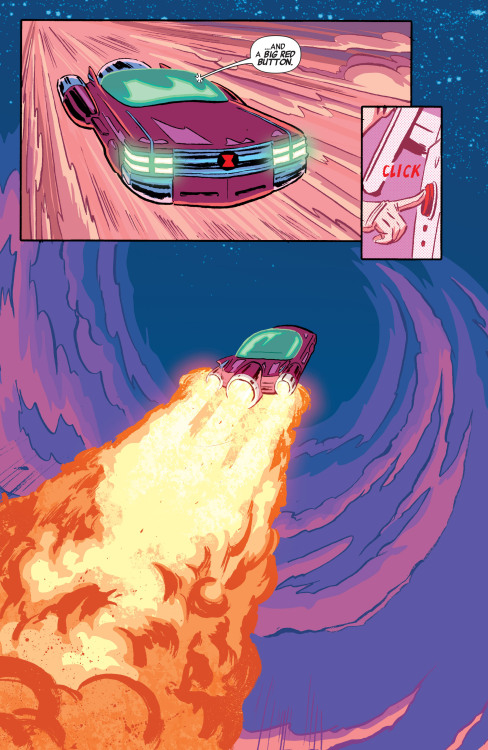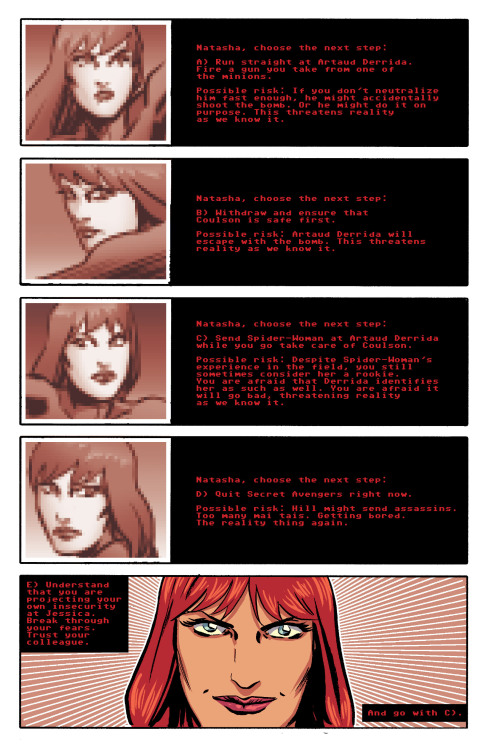I QUIT! Earth’s Mightiest Heroes? Well no more!The Superior…

I QUIT! Earth’s Mightiest Heroes? Well no more!
The Superior Spider-Man – 026. Dan Slott, Humberto Ramos, Marcos Martin, Javier Rodriguez, Alvaro Lopez, Victor Olazaba.

I QUIT! Earth’s Mightiest Heroes? Well no more!
The Superior Spider-Man – 026. Dan Slott, Humberto Ramos, Marcos Martin, Javier Rodriguez, Alvaro Lopez, Victor Olazaba.


All we need is will… imagination… a dependable team of scientists… and a big red button.
Secret Avengers – v3 – 002 – Save the Empire, Part Two. Ales Kot, Michael Walsh, Matthew Wilson.

Natasha, choose the next step:
Black Widow runs a decision tree; is awesome.
Secret Avengers – v3 – 003. Ales Kot, Michael Walsh, Matthew Wilson.
After a recent Facebook conversation highlighting two different takes on the strength of Black Widow’s feminist credentials in Age of Ultron, it got me thinking about why a number of critics that are usually in agreement are heavily divided on this film. I think the reason is that there are three ways to read the film.
If you look at Age of Ultron on its own, as a stand-alone work with nothing but its own internal narrative and logic, we have not been given enough on Black Widow to either earn the payoff or the pro-feminist interpretation shown most prominently in a recent Washington Post article. A big reason why was because, if you strip the wider context of the Marvel Cinematic Universe, Age of Ultron is a Fair-to-Good movie. The movie in general did little to earn any characterizations and character arcs. This was especially true of Black Widow who didn’t have the screen-time or dialogue-time to establish herself as much of a character at all, much less a strong female one.
You can also interpret the film within the wider MCU. As an episode in a longer story, Widow has somewhat earned the characterization needed to make her statements and actions in this film not seem like shallow writing and clichés. Whedon is spectacular at writing in big arcs and complex webs, where everything is like a vibration from the edge moving towards the big payout at the center (it’s one of the reasons why he’s such a good choice for the big films in the MCU). AoU is a middle child in a longer narrative and looked at that way, Widow is a decently feminist character who has earned the characterization to pull off the problematic parts in AoU.
The third choice (which the WaPo writer takes) is to look at AoU not just within the context of the MCU, but within the wider lens of the entirety of Whedon’s work. Once again, Whedon builds films and TV shows as entries, his stand-alone films are written as if in the midst of a larger canon (Cabin in the Woods), starting a larger canon (Toy Story) or as big universe building exercises in which even expanded time allows us to uncover only little bits at a time (any of his TV shows). More than that, any one of them references the other plenty, even when they don’t strictly connect. As the WaPo author notes, there is plenty of intertext between AoU and the Whedon-verse. In that reading, where the moments, relationships, lines and character arcs are more hefty, built, and filled with reference to the rest of Whedon’s work (which seems to always be his intent) Black Widow becomes a strongly feminist character, even considering her actions and lines in AoU.